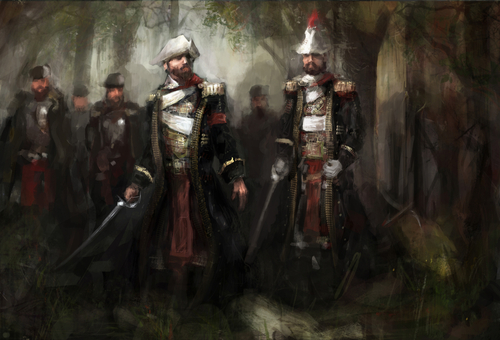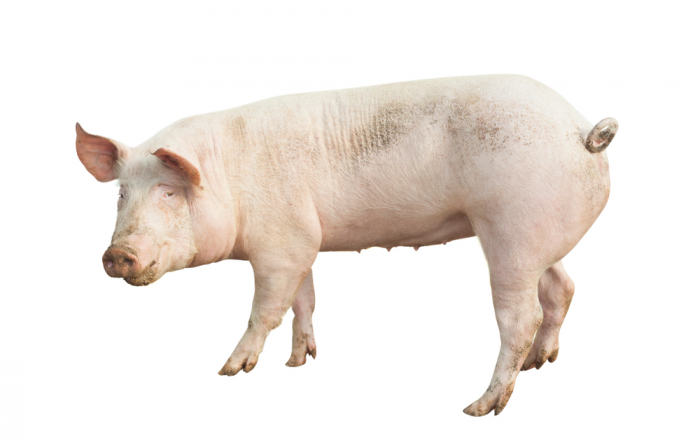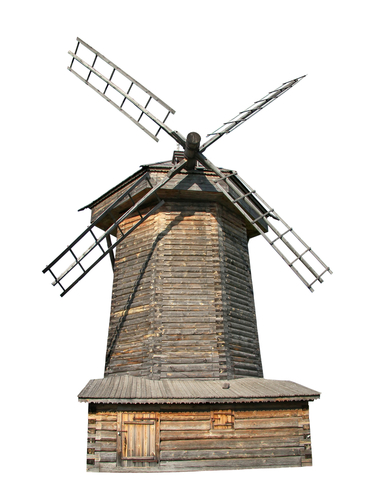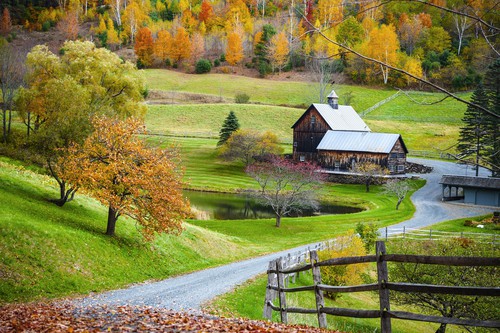Animal Farm
What do you see in the picture below?

A candle, right? Okay, that was an easy question. Now, for a harder question. What might the candle represent?
You may have considered that a candle represents light, life and hope. The candle could represent a celebration, such as a birthday. Alternatively, a candle could remind you of a more sombre occasion, such as the death of a loved one, or it may symbolise Christ.
So, you’re probably wondering what a candle has to do with Animal Farm? The answer is that this analogy links with the skills you need to secure level 3 – evaluating. To try secure a grade 7-9, you need to go beyond what happens to the characters in the story and consider what they might represent as well as what Orwell’s overall message might be. Note the use of modal verbs 'could', 'might' and 'may' to explore a range of possible answers.
Each of the characters in Animal Farm are representations of something else. Orwell uses these representations to try to explore his message about society and politics. So, let’s take a look at what each character might symbolise.
Old Major
.jpg)
Despite only appearing in the opening chapter, Old Major’s impact can be seen throughout the whole novella. Orwell’s use of an omniscient narrator describes Old Major as "highly regarded’ and ‘majestic". This indicates how Orwell wants the reader to view Old Major, as a character worthy of respect. Old Major outlines the terrible conditions under Mr Jones’ control, and the animals’ plight. He’s a skilled orator, the founder of ‘Animalism’ and encourages the animals to form a "rebellion" with his emotive speech.
Old Major explores socialism and is said to represent German philosopher, Karl Marx, co-author of The Communist Manifesto, who argued that the class struggle could only be overcome through revolution. Old Major could also be based on Vladimir Lenin, who led the 1917 Russian revolt and overthrew the Tsar. In the book, Old Major’s skull is put on display as a representation of Animalism; this is a direct parallel to Lenin’s embalmed body, which still remains on display in Russia’s Red Square.

After Old Major’s death, we see a leadership battle develop between Napoleon and Snowball. Again, this could represent the battle between Stalin and Trotsky in the wake of Lenin’s death.
Exam focus: Consider why Orwell uses the narrator to present Old Major is such a complimentary light. What might Orwell’s views be regarding socialism and the class struggle? Does he agree with what Old Major says?
Snowball

After Old Major’s death, Snowball appears as the most natural leader. Like Old Major, he is presented as a skilful orator and intelligent. His main concerns regard the welfare of all of the animals and creating a better future for all. His windmill master plan shows his intellect as well as his ambition to use technology to secure a better life for the animals. He insists on votes, committees and creating a democratic state. Snowball is characterised as a polar opposite of Napoleon. We see both characters clash throughout the novella. Despite Snowball’s intelligence, he appears to be unaware of Napoleon’s plans to usurp his power. When he has been run out by Napoleon’s dogs in chapter 5, Snowball becomes a scapegoat for any failings. Snowball represents Leon Trotsky, an activist who also followed Marxist ideals. Trotsky led the Red Army to victory in the Russian Civil war, just as it might be said that Snowball led the victory of the Battle of Cowshed. However, just as Napoleon does to Snowball, Trotsky was forced into exile after disputing Stalin’s leadership.
Exam focus: Consider why Orwell chose to use the name Snowball. What might being white represent? Also, consider the tempestuous nature of a snowball. How might this link to Orwell’s political message?
Napoleon
%20is%20a%20critically%20endangered%20species%20in%20the%20pig%20genus.jpg)
Napoleon is in direct contrast to the character of Snowball. After the death of Old Major, we see a change in Napoleon’s behaviour as he becomes more controlling. He begins to control the food supply; he takes Jessie and Bluebell’s puppies away and trains them for evil gain; and, he expels Snowball. Napoleon asserts himself as Animal Farm’s leader despite being absent during the Battle of Cowshed.
Despite appearing as an advocate for socialism and Old Major’s seven commandments, Napoleon becomes more and more human, or anthropomorphic, as the novella continues: he takes over the farmhouse; he wears Mr Jones’ old clothes; he sleeps in a bed; he uses Crown Derby China; he drinks alcohol; and, by the last scene, it is difficult to distinguish the difference between Napoleon and the other men. We see his socialist beginnings disintegrate as he stages ceremonies for the benefit of outsiders to hide the poverty faced by the animals on the farm. Moreover, he becomes more and more overweight as the story continues, highlighting his excessive greed when the animals are struggling more than ever.
He uses other characters to instil his fearful rules, through the use of the dogs and Squealer. Along with this, he also changes the rules and re-writes history: the seven commandments are amended (subtly, at first); he alters the syntax of the chant "four legs good, two legs bad" to reverse the meaning; and, he claims to have been triumphant at the Battle of Cowshed to prove his strength and superiority. He also seeks to reverse Snowball’s education drive to ensure the animals do not gain knowledge and insight. It becomes apparent that Napoleon operates like a dictator. By the end of the novella, Napoleon is no better than Mr Jones; their master may have changed, but the leadership and values remain the same.
Orwell uses Napoleon to represent the Russian leader, Joseph Stalin. Stalin, a Communist, used the ideologies of Marx and Lenin to create his own strand of Communism, known as Stalinism. We can see parallels between Stalin and Napoleon throughout the novella: The windmill becomes a symbol for Stalin’s five-year plans which aimed to increase productivity, despite having a catastrophic impact on workers; the dogs symbolise Russia’s KGB (state security) and Stalin’s bodyguards; the executions based on animals spying and being linked to Snowball links to Stalin’s show trials and executions to instil his power.

Exam focus: It is worth noting why Orwell chooses to paint Napoleon in such an ugly light, especially at the end of the novel when he has almost merged into a human. What does Orwell want us to think of Napoleon and Stalin’s approach to socialism? It is also worth considering the use of the name Napoleon, linking to military dictator Napoleon Bonaparte. Orwell could be exposing the dangers of entrusting power to one person.
Squealer

Squealer holds a crucial role in the novella as propaganda minister or spin-doctor. As his name suggests, he is an informer and acts as a spy. He is a skilled orator, but in a different way to Snowball. He uses his ability to confuse the animals and make them doubt themselves, often using statistics to support claims that Napoleon is doing everything in his power to provide a better life for the animals. He supports the reversal of education as Squealer knows that the animals will not question him for lack of understanding. We see examples of this through his use of jargon and obfuscation to create a sense that the animals are informed despite not understanding the content. He is very successful as he avoids a revolution against Napoleon.
Squealer represents the danger of language and propaganda to control the masses. He asserts control in a convincing and friendly way, however, he also ensures he has Napoleon’s dogs to provide a threatening presence and an atmosphere of fear. Notably, we see how Squealer subtly changes the wording of the seven commandments until there is only one left: All animals are equal, except some are more equal than others. By changing these gradually over time, Squealer manipulates the animals into believing that they have made a mistake themselves. Here, Orwell is sending the reader an important warning about the use of knowledge and language to seek control.
Boxer
.jpg)
Boxer is unarguably the story’s hero – well, until the end, that is. Throughout the novella, he is presented as a selfless believer of the revolution: his physical strength combined with his work ethic shows the reader his blind faith in the system. Boxer shows a strength of character. He cares for others, as seen when he believes he has killed the stable-lad. However, Boxer fails to ask questions which results in his exploitation. He believes "Napoleon is always right" and when something goes wrong, such as the attack on the windmill, he internalises the problem seeking to "work harder". His belief in the system represents the proletariat or kulak, those who completed physically exhausting work as part of Stalin’s five year plans. Instead of retiring, Boxer is sold to the knacker’s yard and to his death, as Old Major prophesied that Mr Jones would do. Orwell wants us to sympathise with Boxer. Even at the end, the reader hopes that Boxer will break out of the van and create a new revolution against Napoleon. However, Orwell does not depict Boxer as the hero of socialism.
Exam focus: Consider Orwell’s message about exploitation and education. If Boxer had been encouraged to continue with his education, would the ending of the novella be different?
Mr Jones

Animal Farm opens with Mr Jones in charge of Manor Farm. He is described as being "drunk" numerous times and is an ineffective leader, as he doesn’t bother to feed the animals. After the rebellion, he is shown complaining after the event, yet seeking to do little to change things. Even in the attempt to recapture Manor Farm, Mr Jones is supported by other farmers after being angered on hearing "Beasts of England" song. At the Battle of Cowshed, he "was hurled into a pile of dung". This scene could be used for comic effect or to ridicule masters such as Mr Jones. By the end of the novel, we find that Mr Jones dies "in an inebriates’ home" showing the lack of control in his life.
Mr Jones is a static or flat character; all that we know about him is that he is an alcoholic and an incompetent farmer. Consider why Orwell may have chosen to call him such as common name as "Mr Jones". Perhaps Orwell creates such a general description to liken him to many capitalists at the time. However, we see parallels between the rebellion against Mr Jones and the Tsar’s downfall during the 1917 revolution. It could be said that Mr Jones represents the Tsar as a weak and incompetent leader.
Exam focus: Orwell also might be presenting the ignorance of those who inherit wealth as they show a lack of understanding of the class struggle. Mr Jones’ outcome could be a political warning of what could happen when workers are mistreated.
Example answer:
You have just revised the key characters in 'Animal Farm'. Now, let's put this knowledge into practice. Using these sentence stems will help you secure a top grade as they encourage you to focus on symbolism to evaluate:
- Orwell uses the character to symbolise…
- The character represents the historical figure…
- This might/could suggest…
- Perhaps Orwell’s message is…
Great – you’ve read through all of the information about the novella’s key characters. Hopefully, you are now aware of what happens to the characters in the story, but more importantly, how they might symbolise something greater. This will help you to secure a top grade in your examination.
You should always refer to your own text when working through these examples. These quotations are for reference only.
Some of the questions will require marking before you receive a total score.

